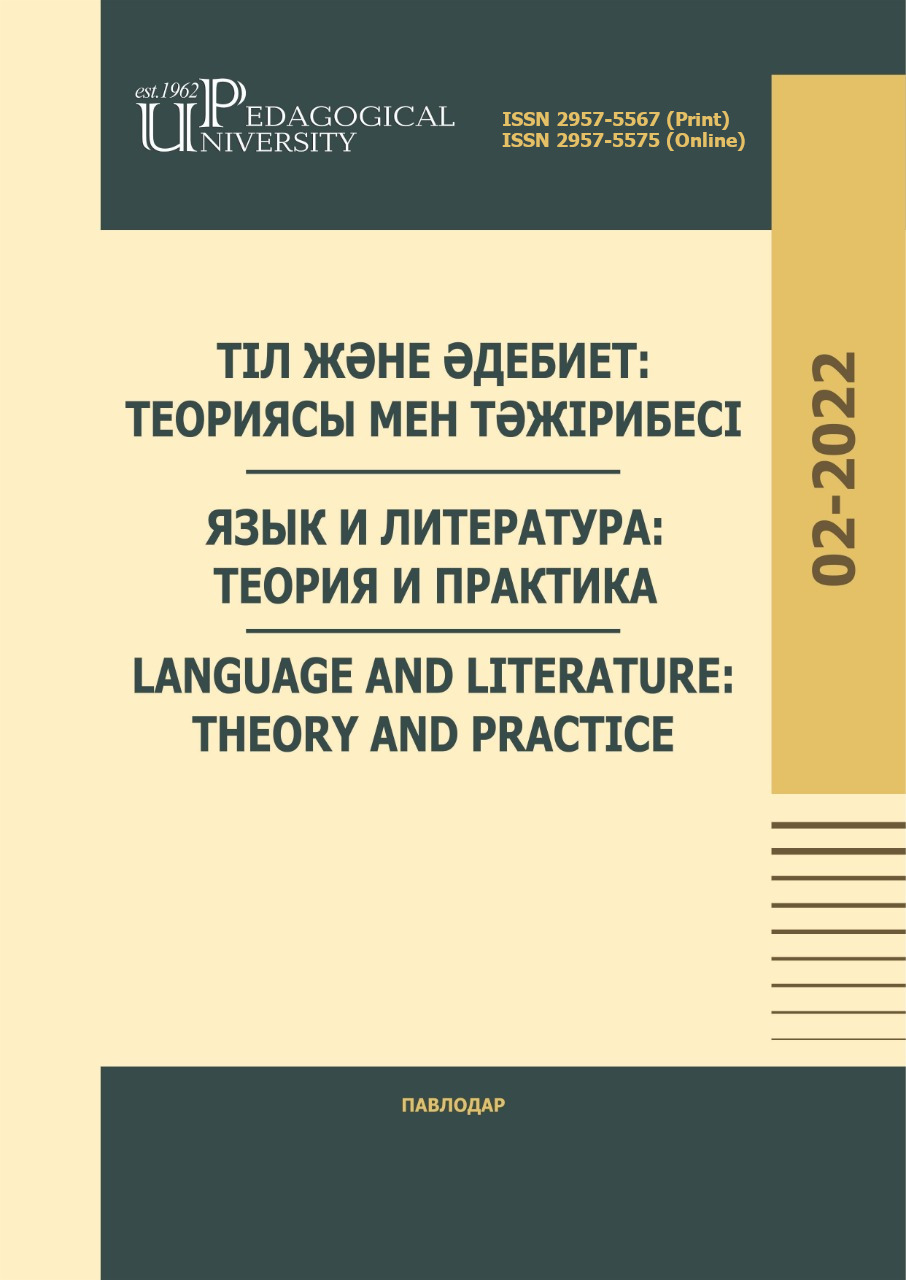Қазақ тілінде оқытатын мектепте (Т2) «орыс тілі мен əдебиеті» пəнінің мазмұнын жетілдірудің қазіргі жағдайы мен болашағы
(жаңартылған мазмұн бойынша 5-6, 8-9 сыныптардың бағдарламалары мен оқулықтары материалы негізінде)
DOI:
https://doi.org/10.52301/2957-5567-2022-2-48-61Кілт сөздер:
əдістемелік қағидалар, коммуникативтілік, функционалдылық, жүйелілік, минимизация, оқу бағдарламалары мен оқулықтардың мазмұныАңдатпа
Мақалада қазақ тілінде оқытатын мектепте (Т2) «Орыс тілі мен əдебиеті» пəні бойынша (5-6, 8-9 сыныптар) оқу бағдарламалары мен оқулықтардың мазмұнына ғылыми-əдістемелік талдау берілген. Жаңартылған мазмұн жүйесінде коммуникативтіліктің, функционалдылықтың, жүйеліліктің, минимизацияның жетекші принциптерін іске асыру мəселелері қаралды. Бұл негізгі талаптарды анықтайтын, содан кейін жергілікті емес немесе шет тілін оқытудың стратегиясы мен тактикасын дамытуға əсер ететін принциптер. Оқытудың соңғы нəтижесі CEFR (Common European Framework of Reference) жалпыеуропалық бағалау жүйесі ұсынған деңгейлерге сəйкес орыс тілінде коммуникация біліктері мен дағдылары болуы тиіс: 5-9 – сыныптар-А2-В1.
«Коммуникативтілік» терминінің құрылымы лингвистикалық, тілдік, прагматикалық, этномəдени жəне басқа да құрамдас бөліктерден тұратын күрделі болып табылады. Сондықтан, осы терминді дұрыс түсіну, демек, оқытудың мақсаты мен міндеттерін нақты тұжырымдау мектеп орыс тілі курсының (Т2) мазмұнын жақсартудың жаңа жолдары мен мүмкіндіктерін табуға мүмкіндік береді.
Загрузки
Жарияланды
Как цитировать
Журналдың саны
Бөлім
Лицензия
Copyright (c) 2022 Тіл және әдебиет: теориясы мен тәжірибесі

Это произведение доступно по лицензии Creative Commons «Attribution-NonCommercial-NoDerivatives» («Атрибуция — Некоммерческое использование — Без производных произведений») 4.0 Всемирная.
https://creativecommons.org/licenses/by-nc/4.0/deed.en


